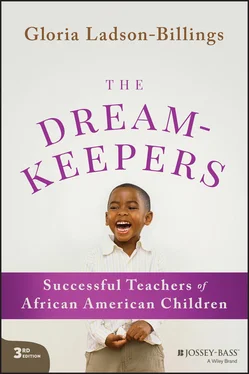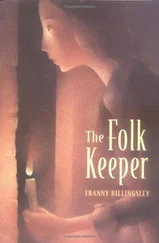1 1. Srna, S., Schrift, R. Y., and Zauberman, G. “The illusion of multitasking and its positive effect on performance,” Psychological Science, 2018, 29(12), 1942–1955. doi:10.1177/0956797618801013
2 2. Ladson-Billings, G. “Culturally relevant pedagogy 2.0, aka the re-mix,” Harvard Educational Review, 2014, 84(1), 74–84.
3 3. Rawls, J., and Robinson, J. Youth Culture Power: A #HipHopEd guide to building teacher-student relationships and increasing student engagement. New York: Peter Lang, 2019.
4 4. Lee, C. D. “A culturally based cognitive apprenticeship: Teaching African American high school students skills in literary interpretation,” Reading Research Quarterly, 1995, 30(4), 608–631.
What happens to a dream deferred?
—LANGSTON HUGHES
In 1935, W.E.B. Du Bois posed the question, “Does the Negro need separate schools?” 1 The question came as a result of Du Bois's assessment that the quality of education that African Americans were receiving in the nation's public schools was poor, an assessment that is still true today. Across the nation, a call in our urban centers for alternative schooling suggests that attempts to desegregate the public schools have ultimately not been beneficial to African American students. School systems in such cities as Milwaukee, Baltimore, Miami, Detroit, and New York are looking at experimental programs designed to meet the specific needs of African American boys. 2 The idea of special schools for African Americans (specifically African American boys) has sparked heated debate about both the ability and the responsibility of the public schools to educate adequately African American students. Why, in the 1990s, after decades of fighting for civil and equal rights, are African Americans even contemplating the possibility of separate schools?
One look at the statistics provides some insight. African American students continue to lag significantly behind their white counterparts on all standard measures of achievement. 3 African American children are three times as likely to drop out of school as white children are and twice as likely to be suspended from school. 4 The high school dropout rate in New York and California is about 35 percent; in inner cities, where large numbers of African Americans live, the rate nears 50 percent. 5 African American students make up only about 17 percent of the public school population but 41 percent of the special-education population. 6 These dismal statistics hold despite the two waves of educational reform initiated in the 1980s. 7
These poor education statistics for African American students correlate with some harsh social and economic realities. Nearly one out of two African American children is poor. The rate of infant mortality among African Americans is twice that of whites. African American children are five times as likely as white children to be dependent on welfare and to become pregnant as teens; they are four times as likely to live with neither parent, three times as likely to live in a female-headed household, and twice as likely to live in substandard housing. 8 More young African American men are under the control of the criminal justice system than in college. 9 Indeed, an African American boy who was born in California in 1988 is three times more likely to be murdered than to be admitted to the University of California. 10
These poor economic and social conditions have traditionally prompted African Americans to look to education, in the form of the integrated public school, as the most likely escape route to the American dream. In the landmark 1954 case Brown vs. Board of Education, Thurgood Marshall argued not only that the separate schools of the South were physically substandard but also that their very existence was psychologically damaging to African American children. Yet now, more than sixty years later, some African American educators and parents are asking themselves whether separate schools that put special emphases on the needs of their children might be the most expedient way to ensure that they receive a quality education.
While I was teaching in California, in the late 1980s, a reporter from another state called to ask my opinion about an African American male immersion school that was under consideration in her city.
“Correct me if I am wrong,” I said, “but don't 90 percent of the African American students in your city already attend all-black schools?”
“Well, yes, I guess that's right,” she responded. “So what you're really asking me is how I feel about single-sex schools?” I went on.
“No, that's not what I'm asking … I don't think,” she said, with some doubt. “But now that you've reminded me that the schools really are already segregated, I guess I need to rethink my question.”
The concern over African American immersion schools is not really about school segregation. Indeed, schools in large urban centers today are more segregated than ever before. Most African American children attend schools with other African American children. Further, as the whites and middle-income people of color (including African Americans, Latinos, and Asian Americans) fled the cities, they not only abandoned the schools to the poor children of color but also took with them the resources, by way of the diminishing tax base. In a better world I would want to see schools integrated across racial, cultural, linguistic, and all other lines. But I am too much of a pragmatist to ignore the sentiment and motivation underlying the African American immersion school movement. African Americans already have separate schools. The African American immersion school movement is about taking control of those separate schools.
I remember my first days in school. Despite the fact that there were close to thirty other five-year-olds vying for the attention of the one adult present, school seemed a lot like home. Everyone there was black. Several of my classmates were children I knew from my neighborhood. The teacher was an attractive, neatly dressed African American woman who told us how much fun we were each going to have and how much she expected us to learn. I thought school was a pretty neat place. It was safe and clean, with people who cared about you: again, a lot like home .
If one puts aside the obvious objections to separate schools that they are inequitable, undemocratic, regressive, and illegal and considers the possible merits, the current calls for separate schools may be understandable. First, most inner-city students already attend de facto segregated schools. At the time when a proposal was offered for the Milwaukee African American male schools, African American students in the Milwaukee public school system were already segregated in its inner-city schools. In fact, this proposal had been preceded by a call for the creation of a separate African American school district in Milwaukee. 11
Second, the public schools have yet to demonstrate a sustained effort to provide quality education for African Americans. Despite modest gains in standardized test scores, the performance of African Americans in public schools, even those from relatively high-income stable families, remains behind that of whites from similar homes.
Third, some data suggest that African American children attending private and independent African American schools consistently perform at higher levels on standardized measures of achievement [than do those who attend public schools]. 12 Of course, one might argue that students who attend private schools are a select subset of the school population and usually have supportive and involved parents, are more motivated, and have other economic and social advantages. However, a closer examination of the African American children who attend private schools reveals that large numbers of them are successful in these schools after having been unsuccessful in public schools. 13
Читать дальше












